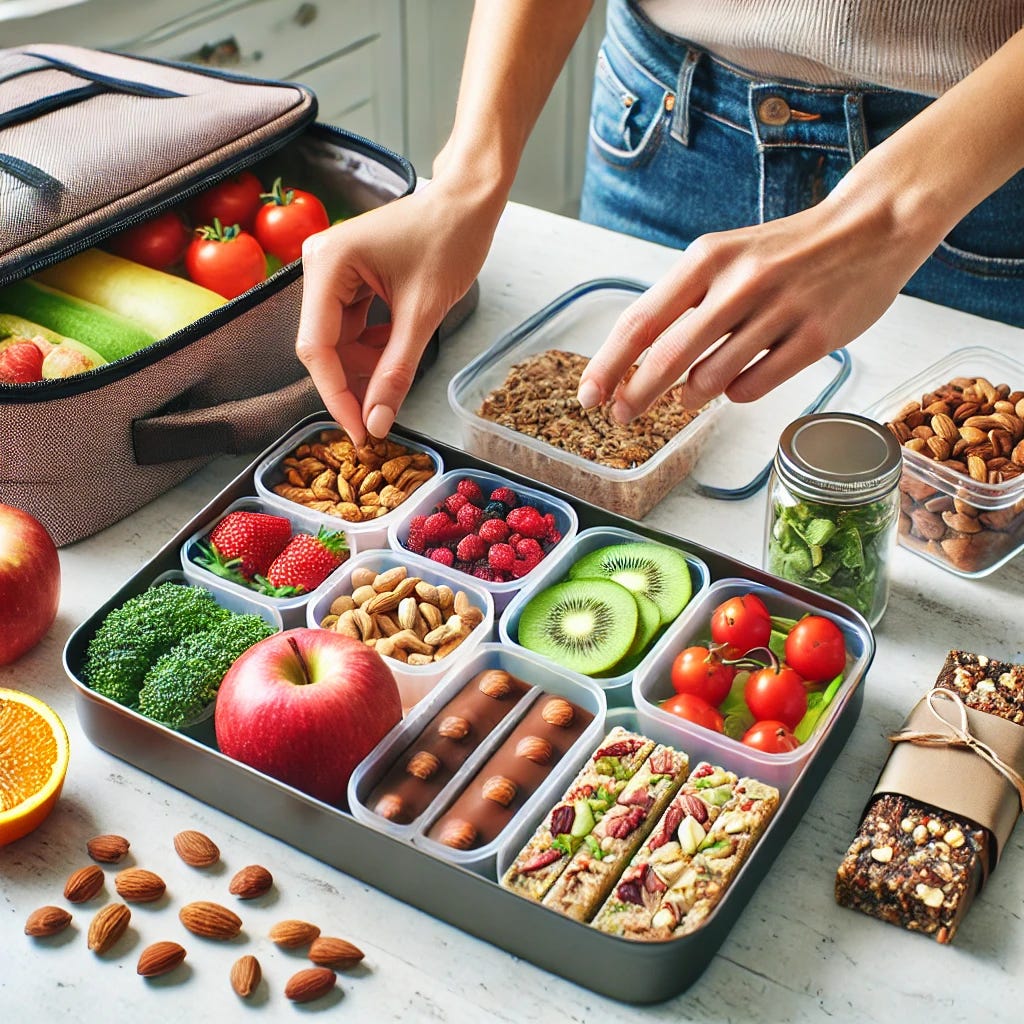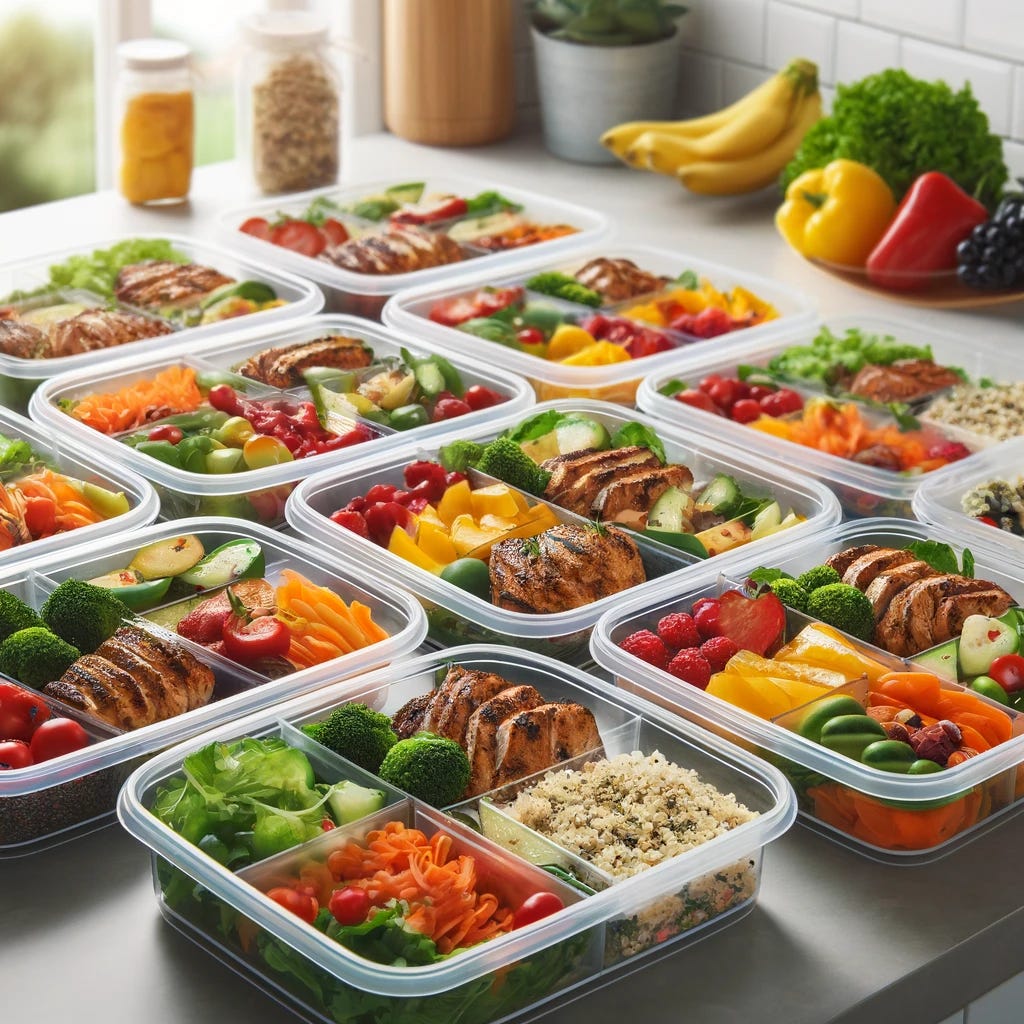Break the Habit: How to Stop Mindless Snacking During Weekends and Travel
Simple Strategies for Healthy Eating on the Go and in Your Downtime
Introduction
Mindless snacking is a common habit for many people, particularly during weekends and while traveling. Whether you're unwinding after a busy workweek or on a long journey, it's easy to indulge in unhealthy snacks out of boredom or convenience. But if you want to improve your health and maintain your fitness goals, it's essential to break the cycle of mindless eating. This blog will guide you through simple, actionable steps to prevent mindless snacking during weekends and travel. From planning ahead to practicing mindfulness, you’ll learn how to stay on track and enjoy your food in a balanced way.
1. Understanding Mindless Snacking
Mindless snacking refers to the act of eating without intention or awareness. It often occurs in response to emotions, habits, or environmental triggers rather than true hunger. The key characteristics of mindless snacking include:
Eating out of boredom or stress, rather than because of actual hunger.
Consuming food without paying attention to how much or what you’re eating.
Choosing convenience foods like chips, cookies, or sugary drinks, which are typically unhealthy.
Mindless snacking is often done while distracted, such as in front of the TV, at work, or while traveling. It can lead to overeating and unhealthy weight gain over time. Understanding this habit is the first step toward breaking it.
2. How Mindless Snacking Affects Your Health
Excessive and mindless snacking can contribute to various health issues, including:
Weight Gain: Consuming extra calories without realizing it can result in unwanted weight gain.
Blood Sugar Spikes: Eating sugary or processed snacks can cause fluctuations in blood sugar levels, leading to energy crashes.
Digestive Issues: Overeating snacks, especially those high in fat or sugar, can lead to digestive discomfort or bloating.
Poor Nutrition: Relying on unhealthy snacks means you may miss out on essential nutrients needed for overall health.
By understanding the consequences of mindless snacking, you’ll have the motivation to make healthier choices.
3. Why Weekends and Travel Trigger Snacking
Weekends and travel are often times when snacking habits can spiral out of control. Here's why:
Weekends:
Lack of Routine: During the week, your eating habits are often structured around work. But weekends are free time, which leads to a more relaxed approach to meals and snacks.
Social Situations: Weekends are a time for socializing, and social events often involve food, leading to temptation and overeating.
Emotional Eating: Weekends can be stressful or emotional, causing some people to turn to food for comfort.
Travel:
Unpredictable Schedules: Traveling often disrupts regular meal times, leading to hunger and the temptation to snack frequently.
Availability of Unhealthy Snacks: Airports, train stations, and convenience stores are stocked with unhealthy snacks, making it easy to indulge without thinking.
Boredom and Stress: Long travel times can lead to boredom or stress, which often triggers mindless eating.
Now that you understand the triggers, let’s dive into strategies to curb mindless snacking.
4. Effective Strategies to Prevent Mindless Snacking
Plan Your Meals and Snacks
Planning your meals and snacks ahead of time can significantly reduce the urge to snack mindlessly. Here’s how:
Meal Prep: Spend time on weekends preparing healthy meals and snacks for the upcoming week. This ensures that you always have nutritious options available, reducing the temptation to snack on unhealthy foods.
Portable Snacks: If you're traveling, pack healthy, non-perishable snacks like mixed nuts, trail mix, granola bars, or cut fruits. When hunger strikes, you’ll have healthy options ready.
Stay Hydrated
Sometimes, thirst is mistaken for hunger. Staying well-hydrated throughout the day can reduce the chances of mindless snacking. Carry a water bottle with you at all times and aim for at least 8 cups of water a day.
Keep Unhealthy Snacks Out of Reach
Avoid bringing unhealthy snacks into your home or car. If they’re not readily available, you’ll be less likely to indulge in them. If you’re traveling, plan your snack stops carefully and avoid filling up on junk food from convenience stores or airports.
Focus on Protein and Fiber-Rich Foods
Protein and fiber keep you feeling fuller for longer, reducing the desire to snack. Incorporate these foods into your meals to curb cravings:
Protein: Lean meats, eggs, tofu, beans, legumes, and Greek yogurt.
Fiber: Fruits, vegetables, whole grains, and legumes.
Set a Snack Schedule
If you find yourself snacking out of habit, set specific times for healthy snacks. This will give structure to your eating habits and reduce the likelihood of snacking mindlessly. For example, plan a snack in the mid-morning and another in the afternoon.
Manage Stress Effectively
Since stress can trigger mindless snacking, find ways to manage stress during weekends and while traveling. Techniques like deep breathing, meditation, or engaging in a hobby can help reduce the impulse to eat emotionally.
5. Healthy Alternatives to Common Snacks
If you’re craving a snack, here are some healthy alternatives to common junk food options:
Instead of chips: Try baked veggie chips, air-popped popcorn, or roasted nuts.
Instead of candy: Reach for fresh fruit or dark chocolate.
Instead of cookies: Choose oatmeal or protein bars.
Instead of soda: Opt for sparkling water with a splash of lemon or herbal teas.
Instead of pastries: Go for a whole-grain muffin or a homemade protein-packed treat.
These alternatives not only satisfy cravings but also provide nutrients that benefit your health.
6. Mindful Eating Practices
Mindfulness is one of the most powerful tools to prevent mindless snacking. By becoming more aware of your eating habits, you can take control of your choices.
Here are some mindful eating practices to implement:
Eat Without Distractions: Avoid eating in front of the TV, computer, or phone. Focus solely on your food and your body’s hunger cues.
Chew Slowly: Take time to chew your food thoroughly. This not only helps with digestion but also helps you feel more satisfied with smaller portions.
Practice Portion Control: Instead of eating straight from a bag or container, portion out your snacks to prevent overeating.
Check in with Yourself: Before reaching for a snack, ask yourself if you're truly hungry or if you’re eating out of boredom, stress, or habit.
By practicing mindful eating, you’ll become more in tune with your body’s needs and less likely to snack mindlessly.
7. Conclusion
Preventing mindless snacking during weekends and travel is entirely possible with the right strategies. By planning ahead, staying hydrated, choosing healthier snacks, and practicing mindful eating, you can break the cycle of overeating and make better choices. Remember, consistency is key. Start small, and with time, you’ll develop habits that keep you on track and support your overall health goals.
Stay proactive about your health, and don’t let the temptation of mindless snacking derail your progress. You have the power to take control of your eating habits and make conscious decisions that align with your fitness and well-being goals.








